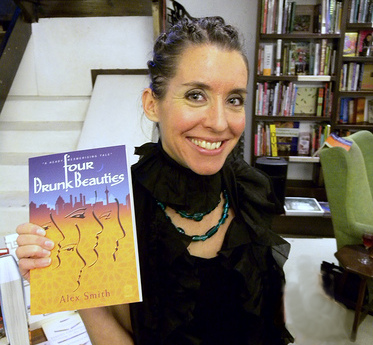If you’ve ever sat staring at your words and wondered, Who am I to call myself a writer? then congratulations – you are a writer. Imposter syndrome is a common struggle for writers, whether you’re embarking on your first short story or publishing your tenth novel. The good news? You can conquer it – or at least silence it enough to keep writing. Let’s explore how.
What is imposter syndrome?
Imposter syndrome is the persistent fear that you’re not as talented or capable as people believe you are, underscored by the anxiety of being ‘found out’ at any moment. For writers, this often manifests in self-doubt about the quality of their work or whether they deserve success.
Take Harper Lee, for example. After the phenomenal success of To Kill a Mockingbird, she didn’t release another book for over half a century. Many speculate that Lee felt immense pressure to meet impossible expectations – a classic sign of imposter syndrome.
Don’t believe everything you think
In his 2022 bestseller, Don’t Believe Everything You Think, Joseph Nguyen explores how our thoughts cause suffering and how we can break free from them. His book offers a transformative perspective: your thoughts are not always facts. When that inner critic whispers, Your writing isn’t good enough, or Everyone else is more talented, it’s important to remember that these are just thoughts, not truths.
Nguyen suggests practising detachment from negative thoughts. For instance, instead of thinking, I am a terrible writer, reframe the thought as, I am having a thought that I am a terrible writer. This small shift reminds you that these thoughts don’t define you.
Practical Tip: Write down your self-doubting thoughts and counter them with evidence to the contrary. For example:
- Thought: I’ll never finish this novel.
- Evidence: I’ve completed five chapters already. I’m making progress.
Stop waiting for perfection
Gary John Bishop’s bestselling book Unfu*k Yourself (2022, HarperOne) delivers a simple but powerful wake-up call: stop overthinking and start doing.
Imposter syndrome often thrives when we’re waiting to be ‘ready’ or for our work to be ‘perfect’. Bishop’s message? You’ll never feel ready. Do it anyway.
Toni Morrison, Nobel-prize-winning author of novels like Beloved and Song of Solomon, wrote in snatches of time between her demanding career and personal responsibilities. While working as an editor at Random House, she carved out moments to write from 4 a.m. before her children woke up. As a single mother raising two sons, she balanced parenting with her editorial work and teaching at various universities. Despite these commitments, she didn’t wait for the perfect time to start writing; she just wrote.
Your work doesn’t have to feel perfect to resonate with readers. Many bestsellers – and bestselling authors – are born from doubt and imperfection. Margeret Atwood, famous author of The Handmaid’s Tale, sums it up perfectly: ‘If I waited for perfection, I would never write a word.’
Practical Tip: Adopt the mantra, Progress, not perfection. Set small, achievable goals – such as writing 500 words a day – and celebrate your progress rather than fixating on flaws.

Own your space
Emerging writers are often intimidated by seasoned authors. Instead of getting caught up in comparisons, redirect your focus from the success of others to your unique lens.
Both Nguyen and Bishop emphasise the importance of taking ownership of your journey. Writing is deeply personal, and no one else can express your story like you can. Your experiences shape your writing voice, and therein lies its value.
Practical Tip: Reflect on what sets your perspective apart. Write down the answer and store it nearby as a reminder for when self-doubt strikes.
Remember, you are not alone
Even the most celebrated writers grapple with imposter syndrome, including the renowned Maya Angelou. ‘I have written eleven books,’ she once said, ‘but each time I think, “Uh-oh, they’re going to find out now. I’ve run a game on everybody, and they’re going to find me out.”’
If this is the experience of a writer of Angelou’s calibre, then imposter syndrome clearly has nothing to do with talent. It’s about mindset – the key is to keep writing despite it.
A step-by-step plan to beat imposter syndrome
- Mindset versus talent: recognise self-doubt as a natural part of the creative process, and focus on your ability to translate your perspective into words.
- Detach from negativity: remember Nguyen’s advice – your thoughts aren’t facts.
- Take action: the subtitle of Bishop’s book, Get out of your head and into your life, is a call to write through the fear.
- Celebrate small wins: every word you write is a victory. Treat it as such.
- Seek community: join writing groups, forums or a writing course where you can exchange struggles and triumphs with others who relate. This is essential for new writers.
By adopting these steps, you can gradually reshape your mindset, conquer imposter syndrome and forge confidence in your writing. The world doesn’t need a perfect writer. It needs your authentic voice, meaning you are enough just as you are. So, take a breath, confront that blank page and fill it with your story. You’ve got this.













